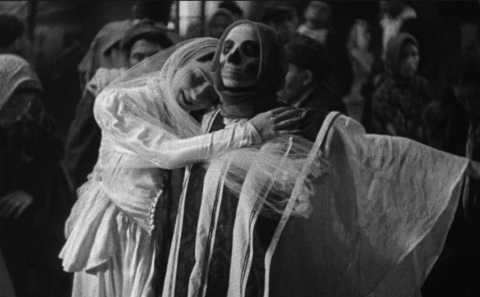Call for Papers: Horror and the Gothic in Holocaust Representation

We are pleased to share this call for papers for 'Horror and the Gothic in Holocaust Representation', an interdisciplinary conference taking place 30-31 October 2023 at the Parkes Institute for the Study of Jewish/non-Jewish Relations, University of Southampton.
Few would deny that the Holocaust was horrific. The Third Reich and its collaborators transformed the landscape of Europe into one of death, implementing technologies of murder and suffering on such a scale that they required a new language of genocide. In their immediate aftermath, these events were invoked as ‘unprecedented horrors’, Nazi perpetrators were rendered monstrous incarnations of evil, and images of zombie-like Muselmänner and piles of human corpses abounded in newspapers and liberation footage. Such images would not only come to serve as enduring Holocaust icons in post-war representations of the event, but would shape the aesthetic and political registers of horror and the Gothic in foundational ways—particularly within modern cinema, which Antoine de Baecque argues was ‘born out of [concentrationary] images’ (De Baecque in Saxton, 2008: 4).
While both genres ‘evolved in response to the Second World War’, the proximate relationship between Gothic horror and the Holocaust pre-dated the genocide, argues Brian E. Crim, with Gothic narratives and cinema respectively foreshadowing Nazi eugenics and aesthetics (Crim, 2020: 10). It comes as no surprise, then, that just as 20th and 21st century depictions of the Holocaust have drawn heavily from horror and Gothic tropes, Holocaust imagery and narratives proliferate in cultural texts pertaining to horror and the Gothic—even those with no ostensible link to the event, such as Psycho (1960), which has been connected to the Holocaust by numerous scholars.
This interdisciplinary conference seeks to explore the diverse ways in which horror and the Gothic relate to Holocaust representation, including art, literature, film, theatre, video games and other digital media. In doing so, it explores the following questions: how have the stylistic and political tenets of horror and the Gothic informed representations of the Holocaust and vice versa? To what degree are these modes well-suited to depicting genocide? How do literary, artistic, and other works of the Holocaust navigate the tension between the inherently transgressive yet at times gratuitously violent tendencies of horror and the Gothic as popular cultural genres?
Suggested topics include:
- Histories of horror and the Gothic through a Holocaust lens
- Horror and/or Gothic tropes in Holocaust representation (haunting; uncanny spaces; the supernatural; suspense; psychological fear; violence)
- Racial science, Gothic antisemitism, and monstrosity
- Jewish folklore and the Gothic
- The relationship between pop culture and the Holocaust
- Holocaust revenge narratives
- Nazi monsters, military horror, and neighbourly violence
- Ethical and/or aesthetic limits of horror
Keynote speaker
Dr Libby Saxton, Queen Mary University of London (topic tbc)
Submission Details
To apply, please submit (i) a title and abstract of no more than 300 words, and (ii) a short bio of 150 words or less to Emily-Rose Baker and James Jordan at e-r.baker@soton.ac.uk by May 31, 2023. Presentations should last 15 minutes, and each panel will include a Q&A. Accepted applicants will be notified by the end of June 2023.